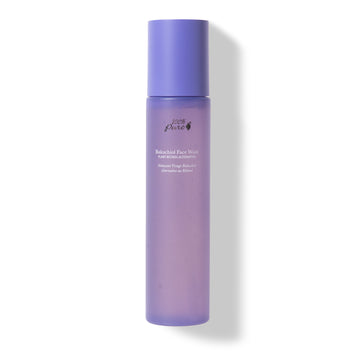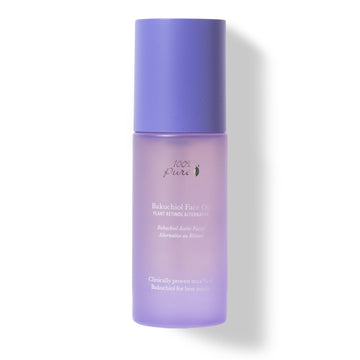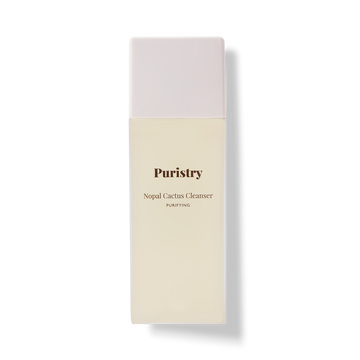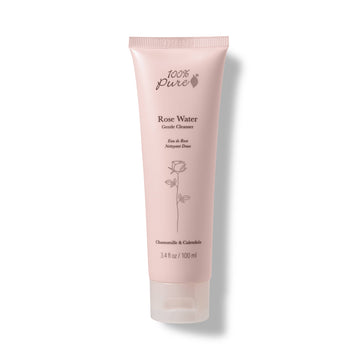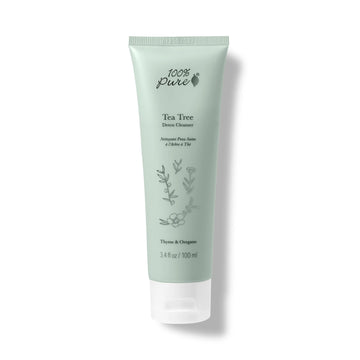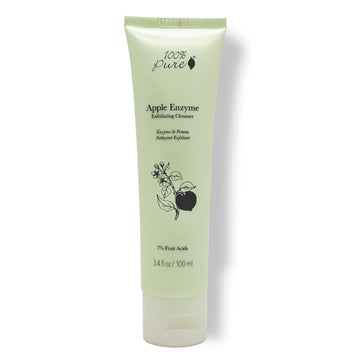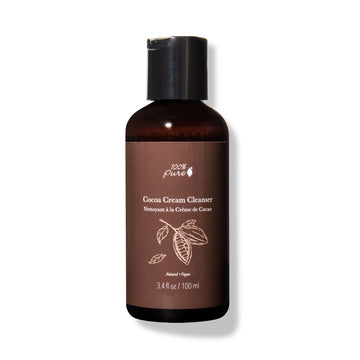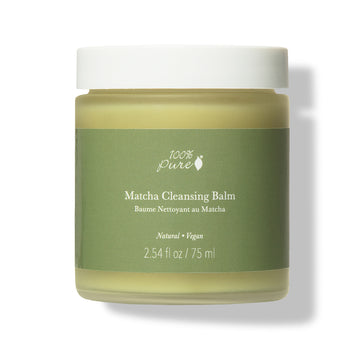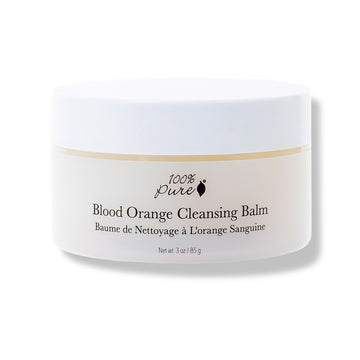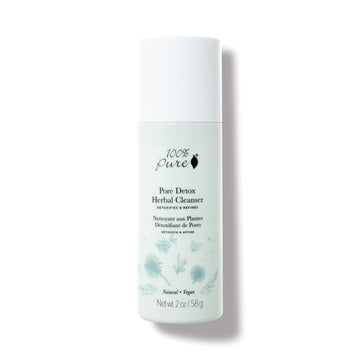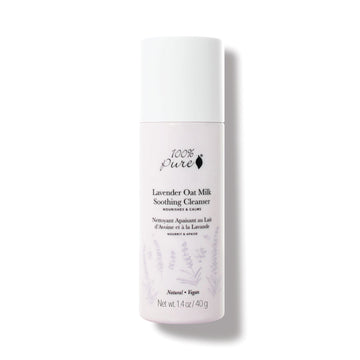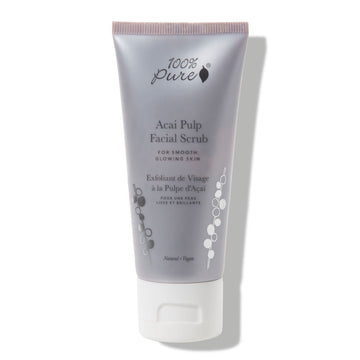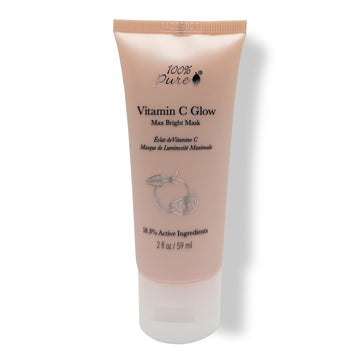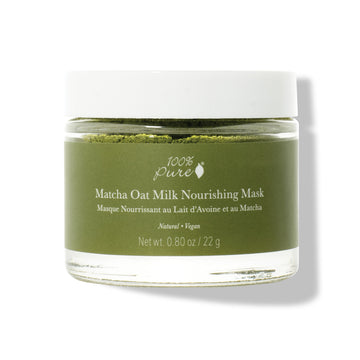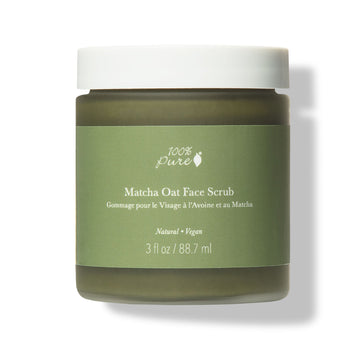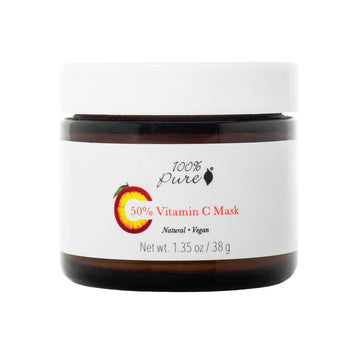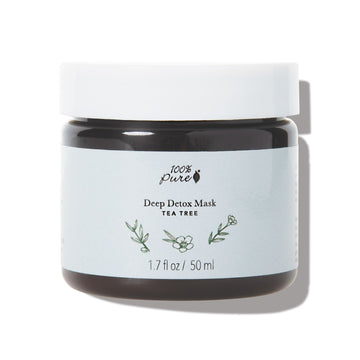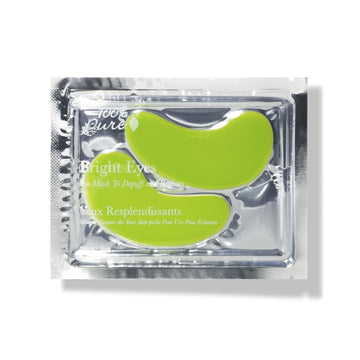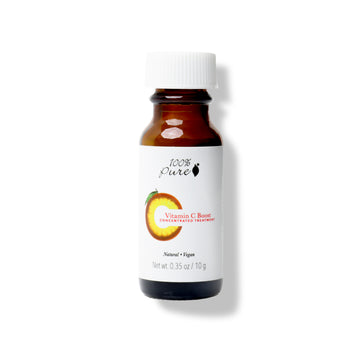What are they, how do they work, and which ones to avoid – plus the best preservative-free products
Written by: 100% PURE®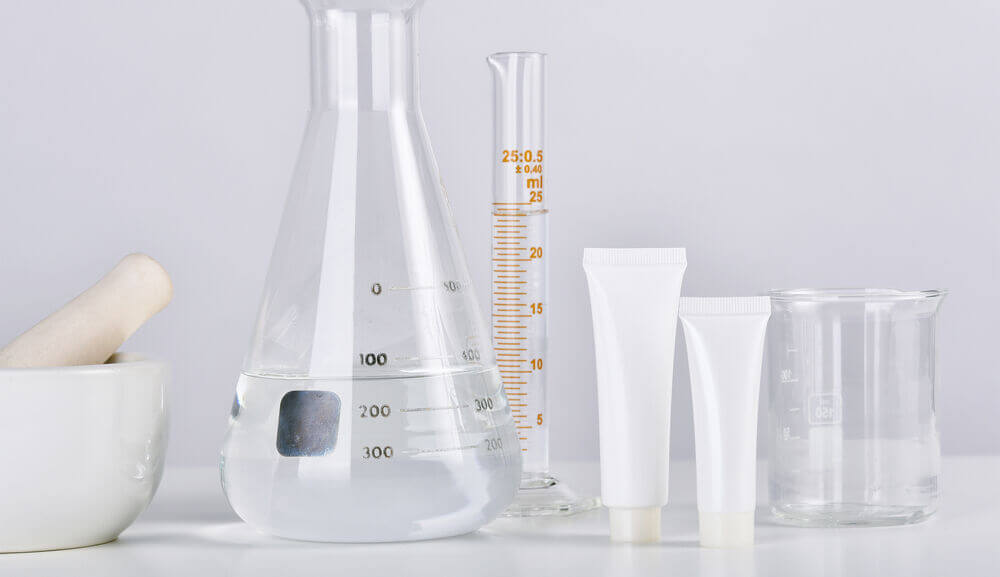
Natural preservatives for cosmetics aren’t exactly rare. Ingredients like salt, sugar, and coconut oil – common natural preservatives – often play recurring roles in our formulas.
There are also preservatives that may not be all-natural, yet are still safe to use on the skin. And then there’s the harmful and unstable class of preservatives, hidden in plain sight in many popular cosmetics. Using the wrong preservatives in cosmetics can wreak havoc on our skin. How do you spot the friendly from the foe preservatives?
We’re shedding light on common cosmetic preservatives, and how safe (or unsafe) they truly are to our skin and health – plus the best preservative-free products for a healthy complexion.
Before we get too ahead of ourselves on preservatives and their role in many of the cosmetics we know and love, let’s rewind a bit for a little snippet of history.
To look at cosmetic preservatives now, we have to go a long way back – almost as far back as the dawn of cosmetics themselves.
In ancient Egypt and Rome, wealthy women reached for beauty products made with kohl, a black powdery substance, saffron, wine, and even goose fat. Water and oils were used to achieve a texture ideal for makeup application, and products were often stored in unique jars and tins for preservation.
In East Asia, an ancient shrub was used to dye hair and lips a dark red; this beauty treatment is still around today, known as henna. In China, beauty regimens involved ingredients such as gelatin and beeswax for soaps.
As recently as the 1800s, natural preservatives for cosmetics like honey, rose, and lemon were used to enhance and beautify the skin. Those techniques have since been improved, and allow natural preservatives to thrive in the modern world of beauty.
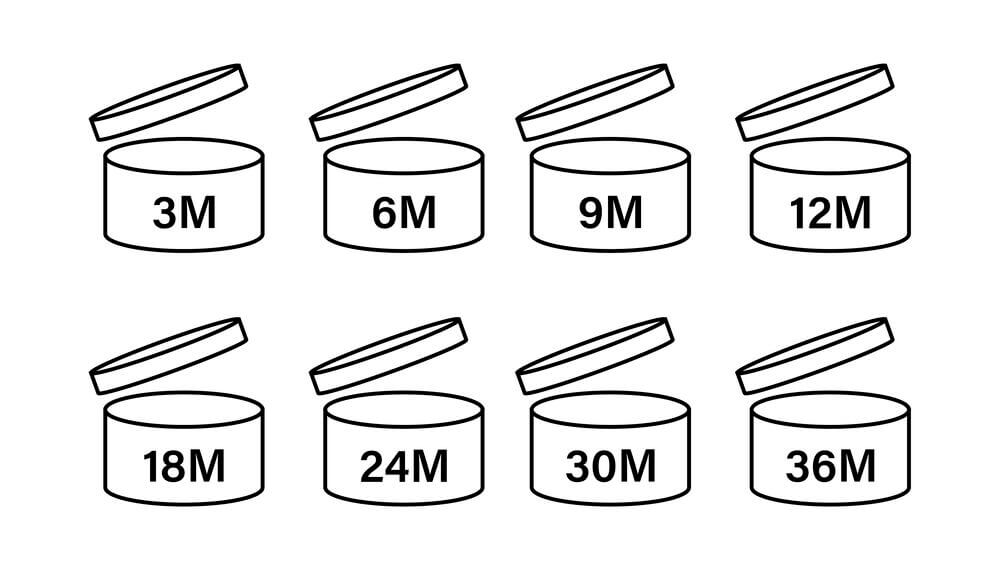
As you can see, preservatives are nothing new - but how exactly do they work?
Any product comprised of certain components will naturally degrade over time; this is where preservatives come in. Preservatives help to maintain ingredient stability and ward against the bacterial population, keeping it safe to use over time with relatively the same quality and performance – at least, until the product hits its expiration date.
Most of us never consider just what it takes to preserve a product. The more water it contains, the stronger and more concentrated the preservatives will need to be. This is because water can be a breeding ground for bacteria.
As our largest organ, the skin has a hard-enough job just keeping us, well, together! Its other job is to act as a barrier against harmful outside pathogens and bacteria. That’s why the products we apply topically need to be effective at staving off bacteria – you don’t want them bringing more onto your skin! Natural preservatives are a clean way to help protect our outsides (and our insides) from bacterial exposure from beauty products.
In general, many think that dry or oil-based products are relatively safe from growing bacteria, but that’s not necessarily true. We cross-contaminate our products every day by digging fingers into eyeshadows, dusting last week’s brushes into blushes, and pressing in our less-than-fresh sponges for quick spot coverage.
Spreading moisture, natural oils, and bacteria between products is reason enough to make sure every formula has its own preservative system in place.
There are a few dirty beauty ingredients that, thanks to modern technology and research, can be avoided if we look out for them. A few that come to mind: parabens, formaldehyde, and SLES or sodium-lauryl-sulfate.
Many of us are trying to be more conscious of what we buy and use, and have been able to dodge these cosmetic culprits. Unfortunately, while they’re still widely used, they are definitely unsafe for our skin. Let’s break down why.
PARABENS
We all know about parabens, currently in the cosmetic hot seat. Parabens can be absorbed into our bodies, where they can disrupt normal hormone functions. Not only do parabens often cause irritation and allergic reactions, but parabens have even been linked to breast cancer.
FORMALDEHYDE
If you recognize the cosmetic ingredient formaldehyde, it is probably because you’ve heard of it from another industry. Yes, the same formaldehyde that’s used in the funeral industry for embalming fluid is also added to many common beauty products as a preservative: nail polish, eyelash glue, and hair gel to name a few.
Because formaldehyde is considered an active ingredient, it can be inhaled when exposed to cosmetics containing it. Formaldehyde has been linked to tumors and the development of certain cancers.
SLS/ SLES
Sodium lauryl sulfates (aka SLS or SLES) has also spent time on the cosmetics naughty list. While we’re happy so much awareness has been raised about the risks of using this product, it is still used as a cleansing agent in skincare and household items.
SLES is a cosmetic surfactant that lingers in the environment and is a known carcinogen. Sulfates can irritate the skin, leaving it stripped and inflamed. It can trigger skin conditions like rosacea, eczema, and acne.
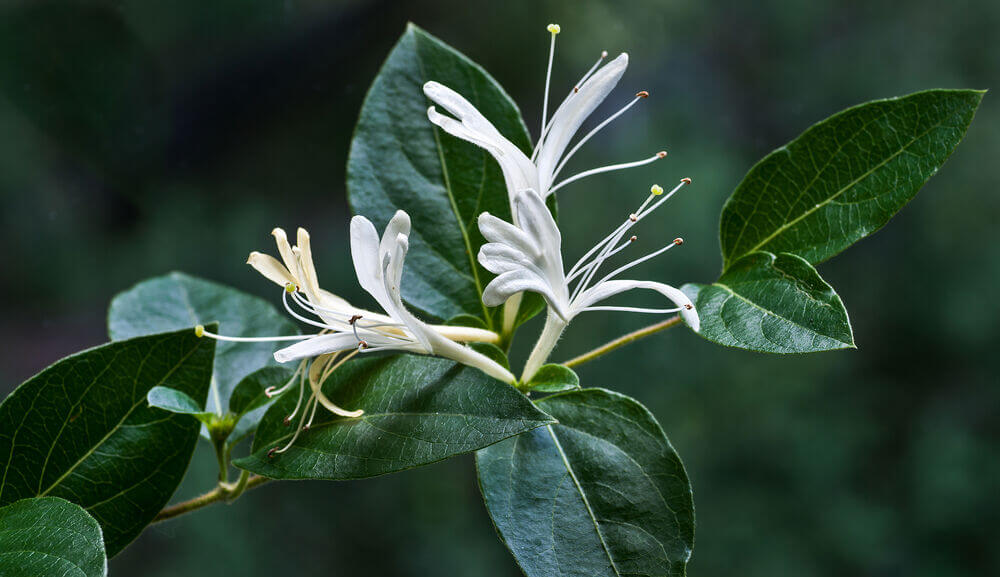
When we’re referencing natural preservatives for cosmetics, what do we mean by “natural”? Essentially, any preservative organically found in nature, or a preservative from a natural plant source would count as a natural preservative.
There’s another type of preservative that we approve of – synthetic preservatives. These are created in a lab utilizing natural sources, but they’re free of toxins and carcinogens like the other toxic preservatives we mentioned earlier.
Why do we find using natural preservatives for cosmetics so important? There are two simple reasons, the first being personal safety. We’ve seen and heard of chemical preservatives having a harmful effect on the skin and the body, begging the question of if their benefits indeed outweigh their risks.
We’re also passionate about natural preservatives because of their environmental impact. Many conventional preservatives used in cosmetics contribute to pollution, by using non-renewable fossil fuels or contaminating precious water resources. Naturally sourced preservatives tend to be gentler on both the planet and your skin, making them a win-win for everyone involved.
Here are a few clean and synthetic preservative alternatives to look for in your cosmetics:
Rosemary
This fragrant antioxidant adds aromatherapy benefits to products, while also helping to keep them bacteria-free. It is a natural antibacterial known to calm the skin and effectively fight breakouts.
Tocopherol
A vegetable-derived compound of vitamin E, tocopherol is a great natural preservative for cosmetics because as an antioxidant, it helps to repair and fortify the skin against environmental damage.
Grapefruit Seed Extract
Also sometimes labeled as GSE, this natural preservative has been around for decades. High in healthy antioxidants like vitamins E and C, grapefruit seed supports healthy, glowing skin.
We’re thrilled to see the world of clean beauty grow, and hope that you are, too! When it comes to beauty, more and more safe products are available every day – giving shoppers more vegan, paraben-free, and sustainable options – and preservative-free is no exception!
At 100% PURE, it’s no secret that we’re obsessed with kind, gentle ingredients from nature. We support beauty based on natural, plant-based, and cruelty-free principles. In fact, we were creating makeup with natural ingredients when that was just becoming the norm! And we’re one of the top choices for clean beauty products.
In following our core values to offer genuinely natural skincare that is safe for skin and health and beneficial to those who absolutely want a zero-preservative formula, we are happy to offer a plethora of fan-favorite, preservative-free formulas. And here’s why.
We offer these products to:
#1. Help lessen any chance of sensitivity, especially for those with ultra-sensitive skin
#2. Decrease inflammation that preservatives can sometimes cause, especially for those with reactive skin
#3. Avoid synthetic preservatives that can disrupt your endocrine system and even cause birth defects
#4. Steer clear of parabens artificially mimic estrogens in the body, leading to a host of metabolic, developmental, hormonal, and neurological disorders
#5. Give options to those who want a safe, effective formula that’s as natural as natural comes; it’s peace of mind that matters
#6. Provide formulations that are gentler on your skin and the planet
We’re also passionate about natural preservatives because of their environmental impact. Many preservatives used in cosmetics contribute to pollution, by using non-renewable fossil fuels or contaminating precious water resources. Naturally sourced preservatives tend to be gentler on both the planet and your skin, making them a win-win for everyone involved!
Without further ado, we are proud to list all our products that have no preservatives.
- Bakuchiol Cleanser & Bakuchiol Oil Serum
- Puristry Nopal Cactus Cleanser
- Rose Water Gel Cleanser
- Tea Tree Cleanser
- 7% Fruit Acids Apple Enzyme Cleanser
- Cocoa Cream Cleanser
- Matcha Cleansing Balm
- Blood Orange Cleansing Balm
- Pore Detox Herbal Cleanser
- Lavender Oatmilk Soothing Cleanser
- Pumpkin Enzyme Scrub
- Açaí Pulp Facial Scrub
- Vitamin C Glow Max Bright Mask
- Matcha Oat Milk Nourishing Mask
- Matcha Oat Face Scrub
- 50% Vitamin C Mask
- Tea Tree Deep Detox Mask
- Single Sheet Hydrogel Masks
- Bright Eyes Masks
- Vitamin C Boost
- Niacinamide Boost
- Multi-Vitamin Oil
- Argan Oil
- Intensive Nourishing Oil
- Super Fruits Oil
- Marula Oil
- Rosehip Oil
- Retinol Night Balm
- Super Fruits Balm
- Intensive Nourishing Balm
- Multi-Vitamin Eye Treatment
- De-Frizz Serum
As we’ve helped shed some light on, there are a variety of uses for preservatives and how natural preservatives can be beneficial in skin and health applications and products. While we offer natural preservatives in some of our formulas, we’re happy to also have a list of options for anyone – no matter their skin type or concern. It’s peace of mind, body, and skin that matters!
- Tags: January-2023, Skin Care, skincare
We carefully hand-select products based on strict purity standards, and only recommend products we feel meet this criteria. 100% PURE™ may earn a small commission for products purchased through affiliate links.
The information in this article is for educational use, and not intended to substitute professional medical advice, diagnosis, or treatment and should not be used as such.


